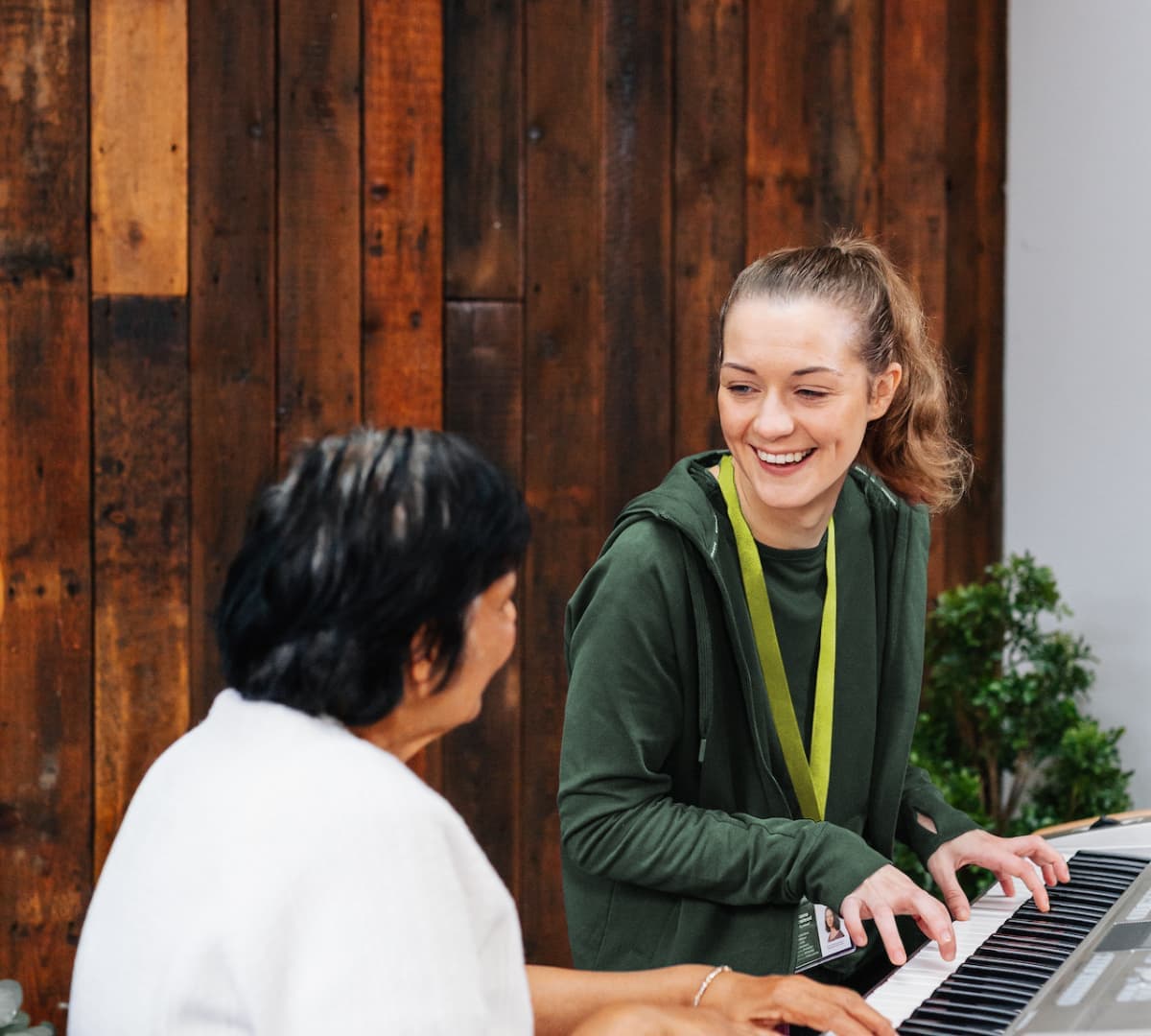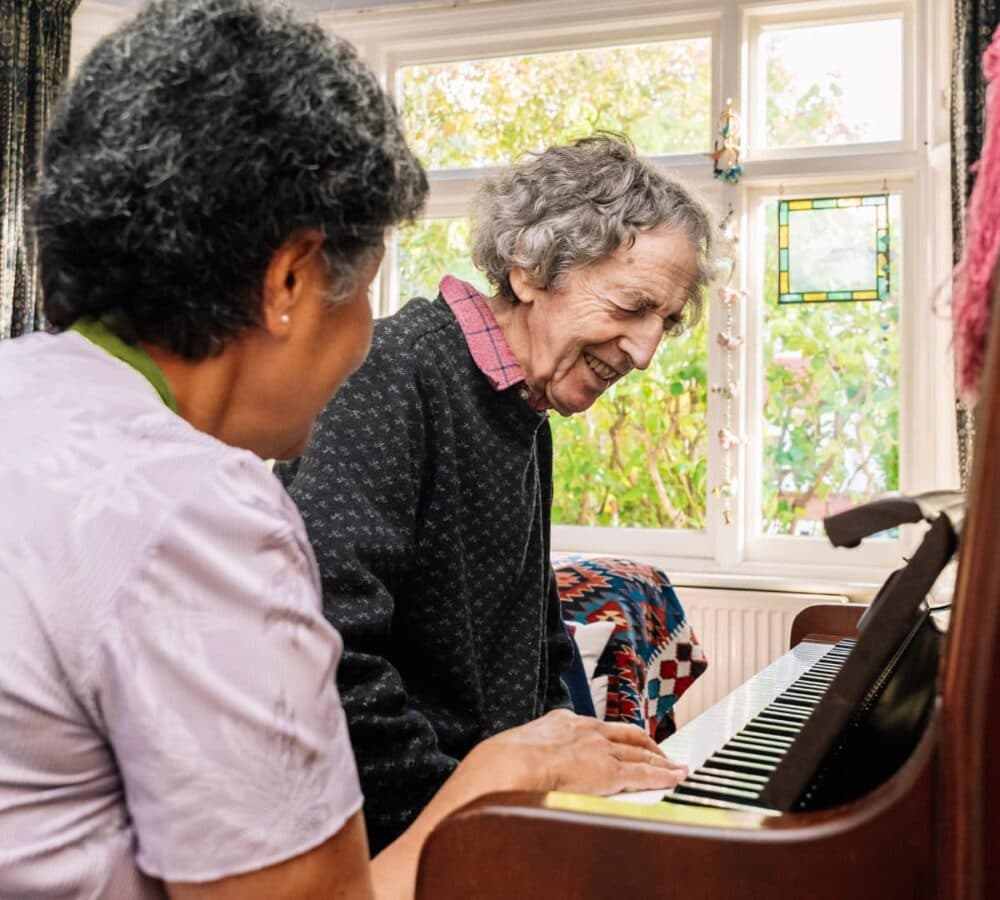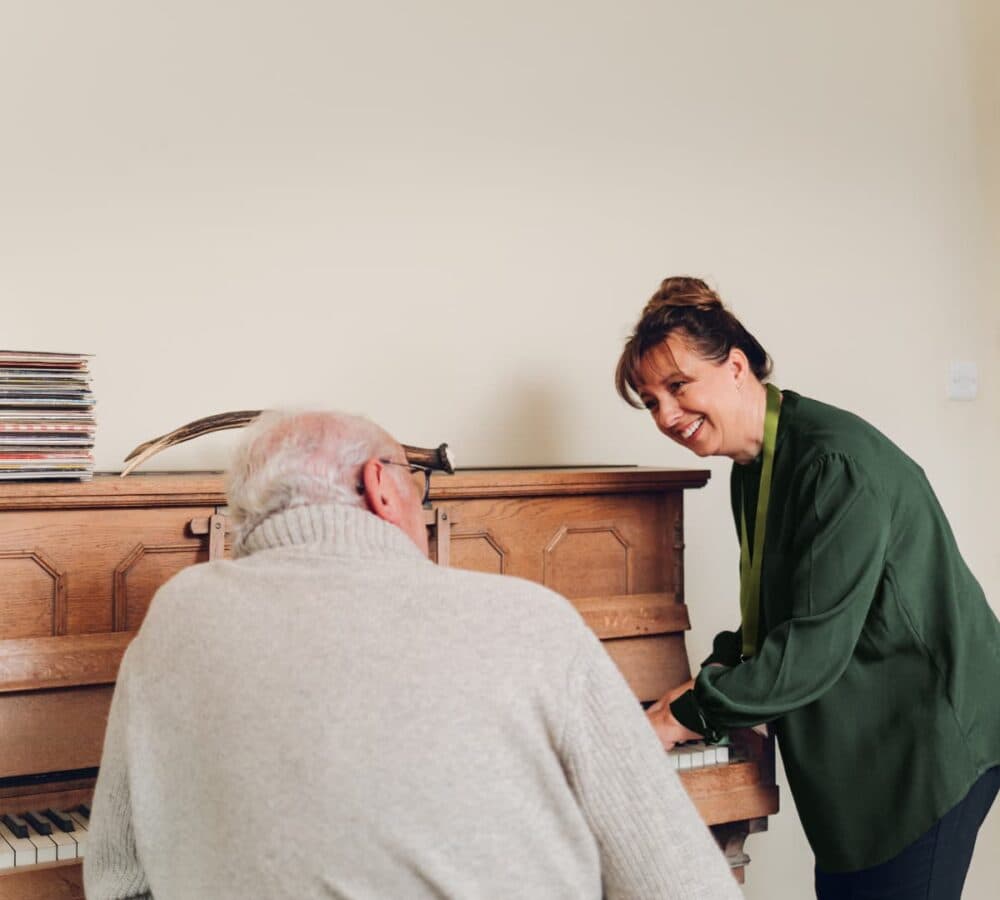The Power of Music for the Brain: How Singing Supports Wellbeing in Wembley

Music is more than background noise; it’s a powerful tool for brain health and emotional wellbeing. In Wembley, families often ask how activities like singing can support older relatives, particularly those living with dementia.
How Music Benefits the Brain
Research shows that music and singing act as a mental workout, lifting mood, boosting memory, and strengthening social bonds. At Home Instead, we’ve seen firsthand how introducing music can bring joy and connection into daily life.
Singing is surprisingly powerful for the brain. It engages memory, focus, language, and even physical coordination – all while being enjoyable. Studies suggest that regular singing stimulates multiple areas of the brain at once, helping to form new neural connections and supporting long-term cognitive resilience. This is especially important as we age, when staying mentally sharp helps maintain independence.

Can music and singing really improve memory and focus?
Yes. Remembering lyrics and melodies strengthens both short and long-term memory. Following rhythm, timing, and breathing patterns also supports concentration.
For those living with dementia in Wembley, these small but regular exercises can make a noticeable difference in recall and communication.
How does singing support language and communication?
Singing reinforces vocabulary, pronunciation, and the brain’s ability to process speech sounds. Even when spoken words become difficult, music can often unlock language and provide another way to connect.
Emotional and Mental Health Benefits
Singing is not just good for the mind; it’s good for the heart. It releases endorphins and oxytocin, hormones that lower stress and boost mood.
Does singing reduce stress and lift mood?
Absolutely. It can ease feelings of anxiety, lower cortisol (the stress hormone), and create a sense of calm. Many of our clients tell us they feel “lighter” and “more themselves” after a short singing session or listening to music, whether it’s a favourite hymn, a 60s pop hit, or even a football anthem.
Can music and singing help reduce loneliness?
Yes. For older adults, especially those who may feel isolated, group singing can be transformative. It reduces loneliness, sparks new friendships, and fosters uplifting shared experiences in the local community.
Brain Health and Ageing
Neuroscientists describe singing as a “whole-brain activity.” It stimulates multiple regions at once, improving breath control, posture, and coordination.

Does singing protect against dementia?
Research suggests that singing may help slow cognitive decline. The Alzheimer’s Society’s Singing for the Brain sessions are a great example, offering structured, supportive environments where people with dementia and their carers can enjoy music together.

Find a Musical Activity Near You
The Alzheimer’s Society has made it even easier for you to find community events and activities such as Singing for the Brain sessions or musical get-togethers at companionship and memory cafes across the area.
Need a companion? Call our friendly team to discuss getting out and about or how our Care Professionals can bring music and joy into your home.
How Home Instead Care Professionals Bring Music Into Care
Our Care Professionals often use music as part of personalised support. That could mean playing a favourite record during a visit, encouraging a client to sing along while preparing lunch, or accompanying them to local singing groups. We believe small moments of joy, like singing a familiar tune, can make a big difference in helping our clients feel connected, uplifted, and valued.
If you’re interested in any of our services, including companionship, our award-winning dementia care, or a helping hand connecting with the local community, we can help.
For Wembley, call 0208 022 4590 or enquire online.

FAQ: Music, Dementia, and Home Instead
Q: Can singing really help with dementia?
Yes. It can support memory, communication, and wellbeing, while reducing agitation.
Q: Do you have to be musical to benefit?
Not at all. The benefits come from joining in and enjoying rhythm, not from being in tune.
Q: How can families bring music into daily life?
Start with familiar playlists, radio shows, or songs from your loved one’s past. Encourage gentle singing or simply enjoy the music together.
Q: Does Home Instead Wembley include music in care?
Yes. Our Care Professionals use music as part of companionship and dementia care, and we can also signpost families to local Singing for the Brain sessions.